A slogan or tagline (really the same thing) is a part of the branding of a business, service, product or product line. Motto is another word that could apply.
This is one of the most abused, misused and misunderstood of marketing concepts.
To illustrate, here are some current and past company slogans:
“We Power Success”
“Imagination at Work” – General Electric
“Think Different” – Apple’s former slogan
“Taking Care of Business” – Office Depot
“How Doers Get More Done” – Home Depot – formerly “You Can Do It. We Can Help.”
“THINK” – IBM
“Don’t Be Evil” – Google (formerly, unofficial)
“The Ultimate Driving Machine” — BMW
“Make America Great Again” – Trump campaign slogan
“Not Me. Us.” – Sanders campaign slogan
“It’s time for a new generation of American leadership” – Buttigieg campaign slogan
What do you think of these?
WHAT IS A SLOGAN FOR?
Maybe we should start at the beginning. What is a slogan for? Or tagline, or motto. (We can use these terms interchangeably, so I’ll just say “slogan.”)
Presumably there is a reason to have a slogan. Otherwise we are just “I like it” or “I don’t like it.” It’s not only a box to tick off. “Do we have a slogan?” “Yes.” “Good.”
A slogan is part of a company (or product line or even product) BRANDING, which is to say, it should do two things. Any branding element must do, or contribute to both of these, or it is a waste of time, money, effort and thought:
- To give people the right impression of what you do and what you are like.
- To differentiate you from others in the same industry, or even other industries.
If you don’t do the first of these, well, why are you bothering? Just trying to sound good or something?
If you don’t do the second, no one is going to remember.
THE GOOD, THE BAD, AND THE UGLY
With that in mind, consider the slogans I quote above.
Some of these are completely forgettable. They will sink beneath the waves of the marketing sea, never to be seen again.
“We Power Success.”
What does that even mean? Oh, I can sit here and imagine what they are trying to say. The problem is, why do I have to imagine it? I don’t even have the vaguest clue what the company does. And every company in the world could probably make a case for that same slogan. So that is useless.
And yet someone, possibly a high-priced consultant, thought it was a good idea.
How about the IBM slogan, “THINK.” Are they telling us to think? Or maybe to think hard, since it is all in capitals? Who are they to badger me, even insulting my intelligence. Of course I think!
Again, I can imagine what they might be trying to say. While the first one, bland as it is, I’m pretty sure what they are trying to communicate. I honestly am at a loss with IBM. I’m guessing maybe they are trying to say that THEY think. Or their computers do. Or something.
If you have to explain a slogan or a joke, it has already failed.
I wonder how much they paid to develop that slogan? BIG bucks, I bet.
“Imagination at Work”, the General Electric slogan, is nearly as bad. Are we supposed to believe other companies don’t use imagination? Let’s just move on.
THEY AREN’T ALL BAD
There are some good ones. Apple’s famous “Think Different” did what it said. It was different. It immediately stood out and totally positioned the company as what it was, and is: Not just another computer company.
When Steve Jobs and company created it back in 1997, it launched a period of major growth for the company. But do you know, they don’t use that slogan anymore. Why? Apple is still the company that thinks differently.
Google’s famous slogan “Don’t Be Evil” also has been given a back seat. It still appears in their corporate principles but not front and center. It never actually was formally a slogan of the company. But what a great slogan. It is different, catchy, completely out-of-the-box. It says something about how special a company Google is. Why NOT make it their actual, formal, promoted slogan? For a company with the stated purpose, to organize all knowledge, it suits.
“Taking Care of Business”, Office Depot’s long running slogan, continues to work, to a very considerable degree because of the same-named theme song. It also at once tells what they do.
Home Depot on the other hand, had a slogan “You Can Do It. We Can Help.” It was incredibly good — different, engaging, even inspiring. It was about why do you go to Home Depot?
But they’ve long-since abandoned it for “How Doers Get More Done” which must have been developed by a committee, it is so bland. It completely loses the emotional engagement of the original for some weird attempt at summarizing what they do. B-O-R-I-N-G.
The BMW slogan “The Ultimate Driving Machine” immediately stakes out a territory for their brand. You know this isn’t about a comfortable luxury sedan. It is a “Driving Machine.” This brand is about what happens when you stomp on the gas. Contrast to Mercedes “The Best or Nothing” – clearly aimed at the snob (Mercedes lovers, don’t get mad at me).
At the risk of offending some of you, I tossed in some campaign slogans. Like him or not, the Trump slogan, also stakes out territory. So does the Sanders slogan. In contrast, what is the Buttigieg slogan about? It really says just one thing: I’m young and the others are old. True, and that is an important distinction, if anyone actually votes for someone just because they are young. And they could hardly have said it more poorly.
CHANGE-ITIS
“Change-itis” is a disease I discovered (I expect to win the Nobel Marketing Prize), that runs wild through the marketing world. It is the compulsion to change something that is working.
It obviously struck Home Depot, which could have kept that same great slogan going for the next 20 years. Apple, too. “Think Different” really nails it on their brand. It’s for people who want different from the 90%.
But companies get tired of their branding. And newly hired marketing agencies feel the need to justify their big bucks by changing things.
But the old maxim still applies: “If It Ain’t Broken, Don’t Fix It.”
REALITY
One more point is worth making on this subject.
Your slogan should be based on reality.
If your slogan is “Slaying Dragons Since 1938”, you should actually have slain dragons in your resume.
Why?
For one, just because it’s honest.
Decades of experience have taught me that reality-based marketing is more effective, easier and more fun. You’re never looking over you shoulder, that no one should find out you’re faking it. You don’t have to worry about keeping your lies straight.
I appreciate the idea of “You’ve Got To Fake It Till You Make It.” If you are actually making it.
People can detect inauthenticity. And your customers should be your friends. Or at least people you serve cheerfully and who are happy with what you do for them. Not someone you are trying to continue to keep in the dark.








